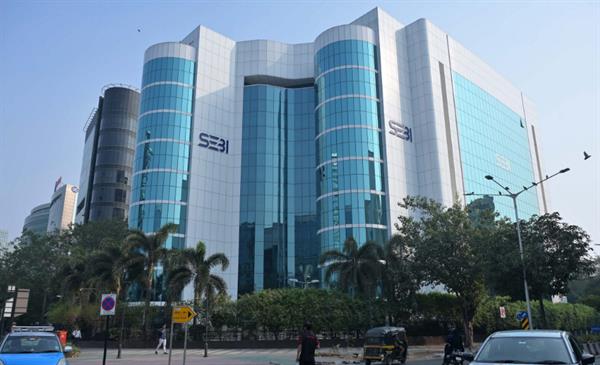SEBI has proposed to provide facility to domestic MFs to invest in foreign funds.
SEBI proposes allowing domestic mutual funds to invest in overseas funds with limited Indian exposure, setting a 20% limit and a 6-month observance period.

On Friday, the Securities and Exchange Board of India (SEBI) proposed allowing domestic mutual funds to invest in overseas funds with limited exposure to Indian securities.
Currently, SEBI-registered mutual funds can invest in various overseas securities, including American Depository Receipts (ADRs) and Global Depository Receipts (GDRs) issued by Indian or foreign companies, equity of overseas companies listed on recognized international stock exchanges, initial and follow-on public offerings on these exchanges, and government securities from countries rated at or above investment grade.
In a consultation paper, SEBI stated, "Indian Mutual Fund schemes may invest in such overseas MF/Unit Trust (UTs) that have exposure to Indian securities, provided that the total exposure to Indian securities by such overseas MF/UTs shall not exceed 20 percent of their net assets." The regulator noted that India's strong economic growth prospects make domestic securities attractive to foreign funds. Various international indices, exchange-traded funds (ETFs), mutual funds (MFs), and unit trusts (UTs) allocate a portion of their assets to Indian securities.
As of April 30, 2024, the MSCI Emerging Markets Index (MEMI) has an 18.08 percent allocation to Indian securities. Likewise, JP Morgan’s ‘Emerging Markets Opportunities Fund’ holds approximately 15 percent in Indian investments, according to its latest factsheet from March 31, 2024. SEBI highlighted that the exposure of the MSCI Emerging Markets Index (MEMI) to Indian securities has steadily increased, rising from about 8 percent in March 2018 to 15.88 percent in October 2023. Given India's robust economic prospects, further increases in allocation to Indian securities by overseas funds/indices are likely.
"Thus, to strike a balance between facilitating investments in overseas funds with exposure to India and preventing excessive exposure, a limit of 20 percent is deemed appropriate," the paper suggested.
SEBI further stated that if, following an investment, the exposure of an underlying overseas MF/UT to Indian securities exceeds 20 percent of their net assets, a six-month observation period should be allowed from the date the breach becomes publicly known. During this period, domestic mutual fund schemes can monitor any portfolio rebalancing by the underlying overseas MF/UT.
During the observation period, domestic mutual funds should not make any new investments in such overseas MF/UTs. They may resume investments if the exposure to Indian securities by the overseas MF/UT falls back below the 20 percent limit, the regulator noted.
When investing in overseas MF/UTs, Indian mutual fund schemes must ensure that all investor contributions to the overseas MF/UT are pooled into a single investment vehicle, without the presence of side-vehicles, and that the corpus is a blind pool with no segregated portfolios.
SEBI also suggested that the overseas MF/UT should be managed by an officially appointed, independent investment manager or fund manager who actively makes all investment decisions for the fund.